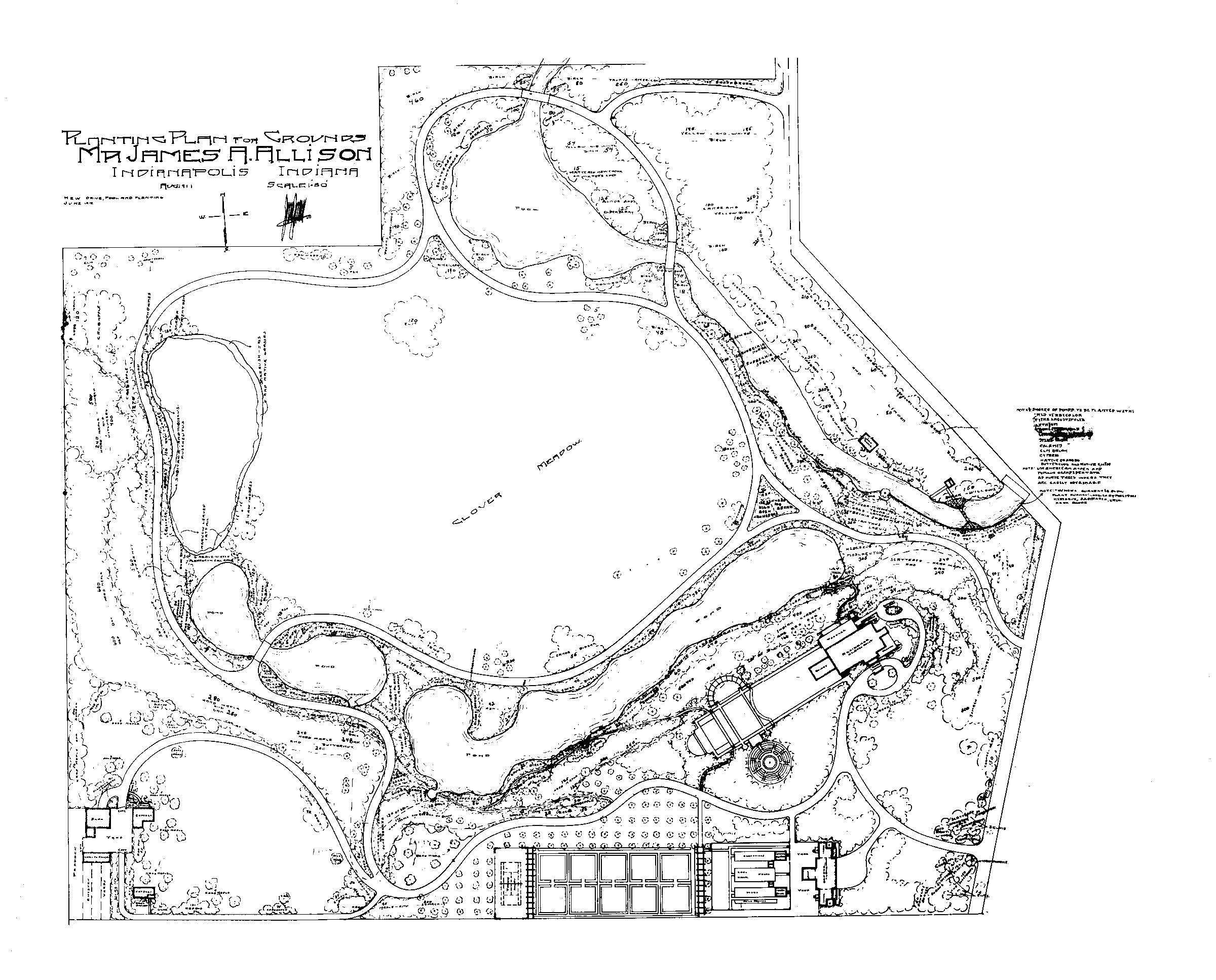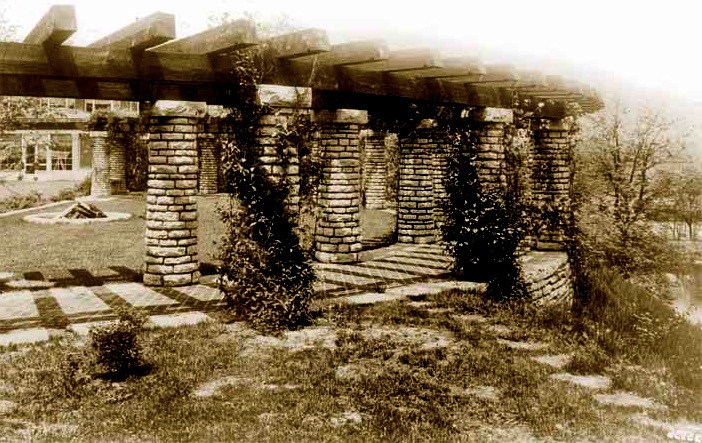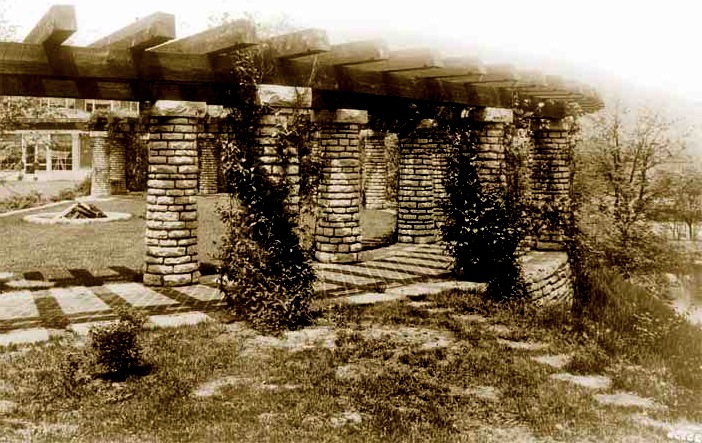 The Marian University Nina Mason Pulliam EcoLab is a vital piece of Indianapolis history, with its roots tracing back to the early 1900s. Once part of the Riverdale estate, the property was originally the country home of James A. Allison, a co-founder of the Indianapolis 500. This estate stands out not only for its historic connection to Indianapolis but also for its exquisite landscape design by Jens Jensen, a renowned landscape architect often called the "Prophet of the Prairie."
The Marian University Nina Mason Pulliam EcoLab is a vital piece of Indianapolis history, with its roots tracing back to the early 1900s. Once part of the Riverdale estate, the property was originally the country home of James A. Allison, a co-founder of the Indianapolis 500. This estate stands out not only for its historic connection to Indianapolis but also for its exquisite landscape design by Jens Jensen, a renowned landscape architect often called the "Prophet of the Prairie."
Jens Jensen was an influential figure in American landscape architecture, particularly known for his focus on native plants and naturalistic designs. Born in Denmark in 1860, Jensen moved to Chicago in 1884, where he began his career as a street sweeper for the Chicago Parks Department. He soon became fascinated with the native flora of the Midwest, especially the prairie landscape. His design philosophy emphasized using native plants in natural groupings, creating spaces that reflected the broad, horizontal lines of the prairie.
In 1911, Jensen was commissioned by James Allison to design the grounds of Riverdale. This was a significant project for Jensen, who had already gained acclaim for his work on several parks in Chicago and private estates across the Midwest. His design for the 64-acre Riverdale estate included trails, stone bridges, spring-fed lakes, and lush meadows, many of which can still be seen today in the EcoLab.
Jensen believed that the natural landscape held profound cultural significance. As he wrote in a letter in 1939, "Our native landscape is our home... It speaks of the distant past and carries our life into the tomorrow." This belief drove his designs, which aimed to connect people with the natural world. Jensen was deeply concerned about the effects of industrialization and urbanization on society, and he saw parks and natural landscapes as essential to restoring people's connection to nature and therefore acting as antidote to the dehumanizing effects of city life.
Jensen's design for Riverdale included many of his signature features, such as the use of native plants, stone structures, and water features. The gravel trails in the EcoLab are built on top of Jensen's original roads, and several architectural elements like limestone stairs, benches, and bridges remain intact. The property also features a council ring and an amphitheater, designed to bring people together in a natural setting for reflection and discussion. Jensen's designs aimed not only to beautify the landscape but also to inspire deeper connections between people and the environment.
 James A. Allison, born in 1872, was a key figure in Indianapolis's early 20th-century growth. Along with his business partners Carl Fisher and Frank Wheeler, Allison was instrumental in founding the Indianapolis Motor Speedway in 1909, a landmark that would go on to host the world-famous Indianapolis 500. Allison was a forward-thinking businessman and inventor, whose wealth came from his work in the automotive and airplane parts industries.
James A. Allison, born in 1872, was a key figure in Indianapolis's early 20th-century growth. Along with his business partners Carl Fisher and Frank Wheeler, Allison was instrumental in founding the Indianapolis Motor Speedway in 1909, a landmark that would go on to host the world-famous Indianapolis 500. Allison was a forward-thinking businessman and inventor, whose wealth came from his work in the automotive and airplane parts industries.
Construction of the Riverdale estate began in 1910, and by 1914 the mansion and grounds were completed. The estate, designed by Jens Jensen, showcased Allison's passion for quality and innovation. The mansion, dubbed the "House of Wonders," featured state-of-the-art amenities like an elevator, a central vacuum system, and an indoor swimming pool. The house itself was a blend of Prairie School and Lombardy Villa architecture, with lavish interiors inspired by European styles.
The grounds of the Riverdale estate were equally impressive, with over four miles of driveways, several footpaths, and bridle paths winding through the property. Jensen's design for the estate included a series of spring-fed lakes, a clover meadow, and formal gardens near the mansion. The formal gardens were distinct from the natural areas, reflecting Jensen's belief in the balance between human-made and natural beauty.
The estate was meticulously maintained by a team of 28 staff members, and it remained in the Allison family until 1936 when it was sold to the Sisters of St. Francis of Oldenburg, Indiana. The property then became part of Marian College, which was established in 1937. Today, the mansion and the surrounding grounds, now part of the EcoLab, are listed on the National Register of Historic Places.
 The EcoLab, encompassing about 30 acres of the original Riverdale estate, has undergone significant restoration since the early 2000s. A comprehensive rehabilitation project began in 2000 with the goal of restoring the natural landscape while preserving aspects of Jensen's original design.
The EcoLab, encompassing about 30 acres of the original Riverdale estate, has undergone significant restoration since the early 2000s. A comprehensive rehabilitation project began in 2000 with the goal of restoring the natural landscape while preserving aspects of Jensen's original design.
Today, the EcoLab serves as a living classroom for Marian University students and a place where the public can explore the natural beauty of Jensen's design. The ongoing rehabilitation efforts continue to protect the area's ecological integrity while preserving its historical significance.
Jens Jensen's work at Riverdale is part of a larger legacy that includes more than 350 private estates, parks, and public spaces across the Midwest. While many of these estates have been lost to development, Riverdale remains a testament to Jensen's vision of integrating native plants and natural landscapes into the human environment. His designs at Riverdale, which include the signature prairie meadows, formal gardens, and naturalistic water features, reflect his deep commitment to creating spaces that foster a connection to nature.
The Marian University Nina Mason Pulliam EcoLab stands as a living tribute to both James Allison’s vision and Jens Jensen’s genius. It serves as a reminder of the importance of preserving natural landscapes, not just for their beauty but for their cultural and historical significance. Whether you're walking along the original trails or reflecting by one of the spring-fed lakes, the EcoLab offers a glimpse into the past while fostering a connection to the natural world that is as relevant today as it was in Jensen’s time.